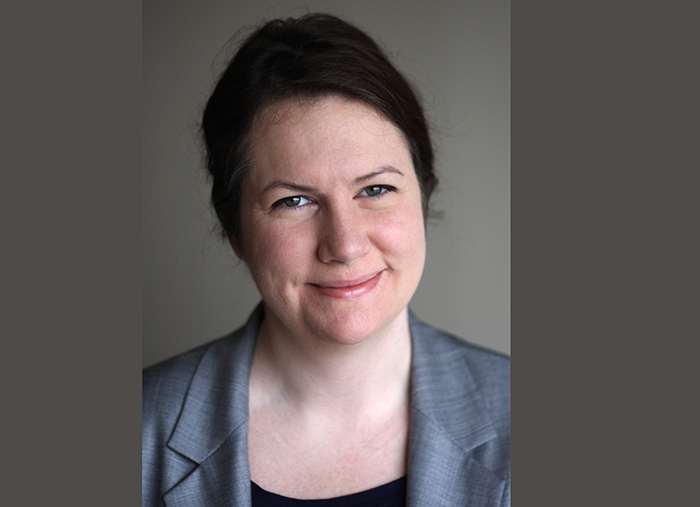We’re taking time over the following weeks to get to know the members of the GSA’s Early Career Scientist Committees. Join us every week to learn more about our early career scientist advocates.
Lacy Barton
Policy Subcommittee
New York University, Skirball Institute of Biomolecular Medicine
Research Interest
The propagation of our species requires specialized cells called germ cells. Germ cells are set aside early in embryonic development and give rise to the eggs and sperm needed to produce the next generation. From early embryogenesis through adulthood, germ cells must undergo a diverse, coordinated, and incredibly conserved set of processes. I am interested in both the development and protection of germ cells—two critical features of reproductive biology.
As a graduate student, I focused on how germ cells are maintained in adults and discovered that germline stem cells possess a unique “quality assurance” mechanism to guard against the production of compromised gametes. As a postdoctoral fellow, my efforts are aimed at understanding how embryonic germline development is regulated and coordinated. I primarily use the fruit fly Drosophila melanogaster as a model organism, combined with a diverse array of experimental techniques from classical genetics to molecular biology to metabolomic analysis and many things in between. Many facets of germline development and protection are remarkably similar between fruit flies and humans, so I leverage these similarities and the wealth of genetic tools in the fruit fly model to uncover new insights into reproductive biology.
As a PhD-trained scientist, you have many career options. What career paths interest you the most?
Fundamental research is both incredibly important and rewarding. I cherish contemplating basic biological questions, testing bold ideas, and training the next generation of scientists. I hope to have the opportunity to continue this work and protect these aspects of basic academic research for future scientists.
In addition to your research, how else do you want to advance the scientific enterprise?
I have a keen interest in the well-being of the fundamental research. The sustainability of the biomedical sector requires resiliency in our early career scientists population. Through efforts on the postdoctoral council at my home institution, I am striving to better understand the unique challenges facing early career scientists with children. Due to the increased length of training, this population of scientists is growing; however, they exit their initial career pathways at disproportionate rates. One of my non-research goals is to advocate for simple changes we can collectively make to help scientists with children stay on their desired career path. For example, implementing a “stop the clock” mechanism for government-funded training grants and early stage investigator eligibility—that mirrors the tenure policies in place at research institutions—would be a relatively simple mechanism to alleviate the pressures of a rigid training schedule at a critical period in the trajectory of early career scientists.
The sustainability of fundamental biological research also requires reliable public support to maintain funding. As a first-generation college graduate from a rural community, I didn’t know a scientist—or anyone who knew a scientist—while I was growing up. I strongly believe that early exposure to research and scientists is a critical first step in sustaining public support for government-funded science. As such, another of my non-research goals is to advocate for a targeted outreach requirement for government-funded training grants and fellowships, with the goal of increasing societal knowledge of basic research. By tying outreach to government-funded fellowships, we can provide a unique opportunity to train scientists while providing a powerful mechanism to bolster public’s support of government-funded research.
As a leader within the Genetics Society of America, what do you hope to accomplish?
Participation in the early career scientist leadership program within the GSA community provides several unique opportunities. As part of the policy subcommittee, I have become connected to many people who are deeply invested in the sustainability of the scientific enterprise. Through shared efforts with the policy subcommittee over the next two years, I hope to learn how to best advocate for targeted initiatives amongst a diverse scientific audience. Participation as an early career scientist leader gives me an opportunity to share ideas and perspectives to a broad scientific audience. It is my goal to capitalize on these opportunities to not only give back to the GSA community that has been instrumental in my training as a scientist, but also to help achieve a broader goal of sustaining basic scientific research.
Previous Leadership Experience
- Domestic violence & sexual assault survivor advocate/counselor—Baraboo, Wisconsin
- Child services coach and grant writer—Baraboo, Wisconsin
- Graduate student representative/ liaison, Dept of Biochemistry—University of Iowa
- Postdoctoral council member—New York University School of Medicine
- Parent scientist advocate/liaison—New York University School of Medicine
Contact














